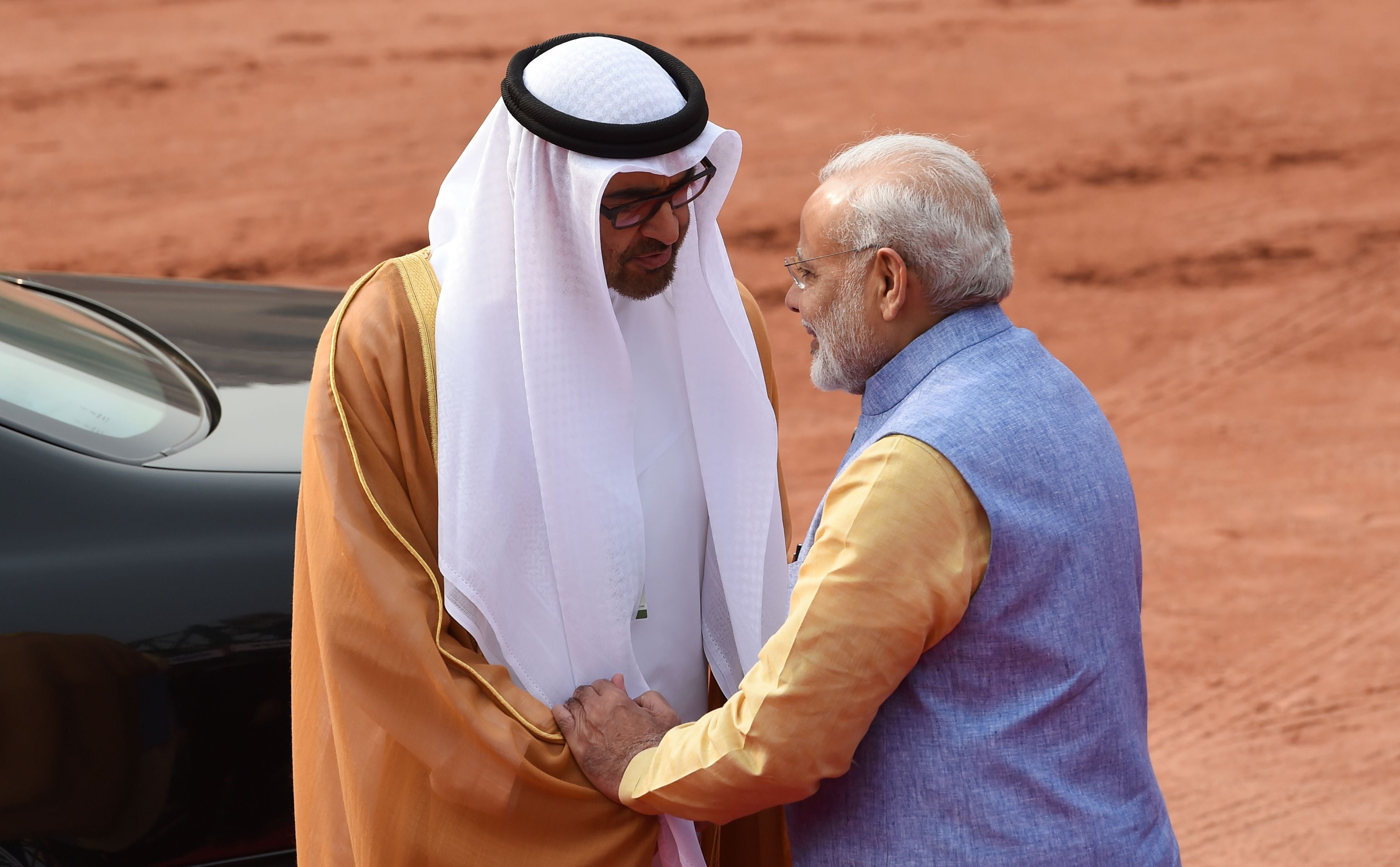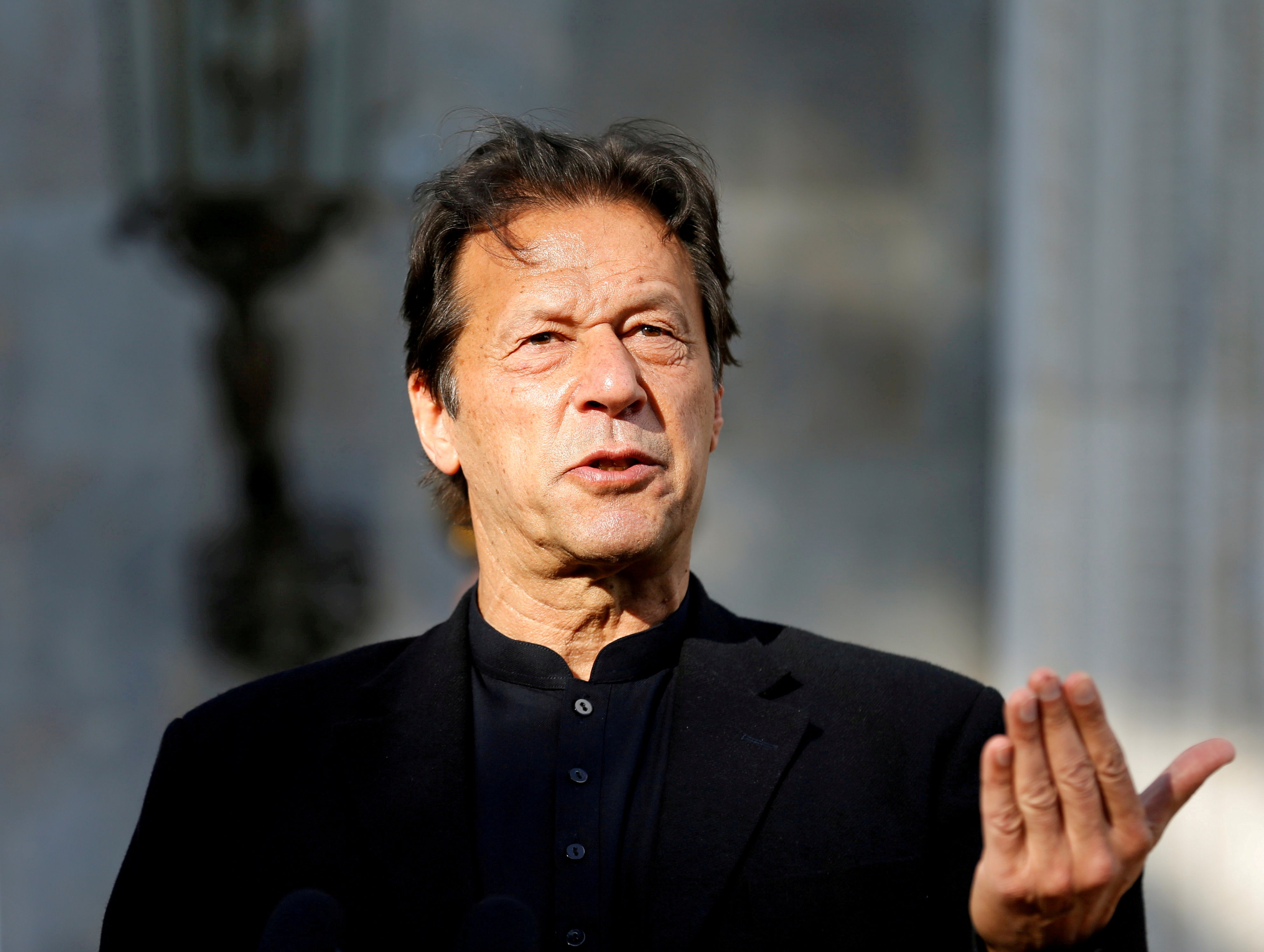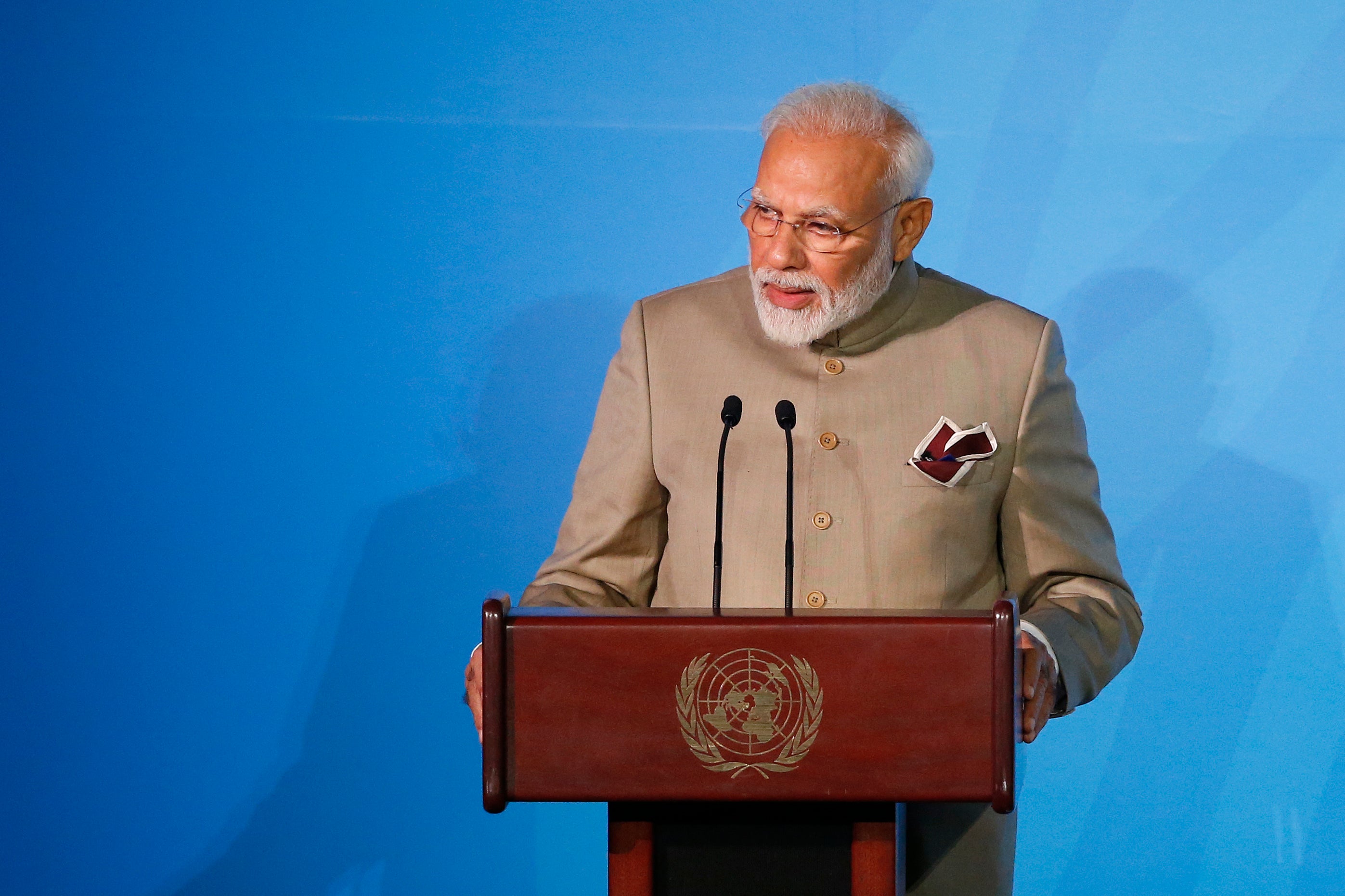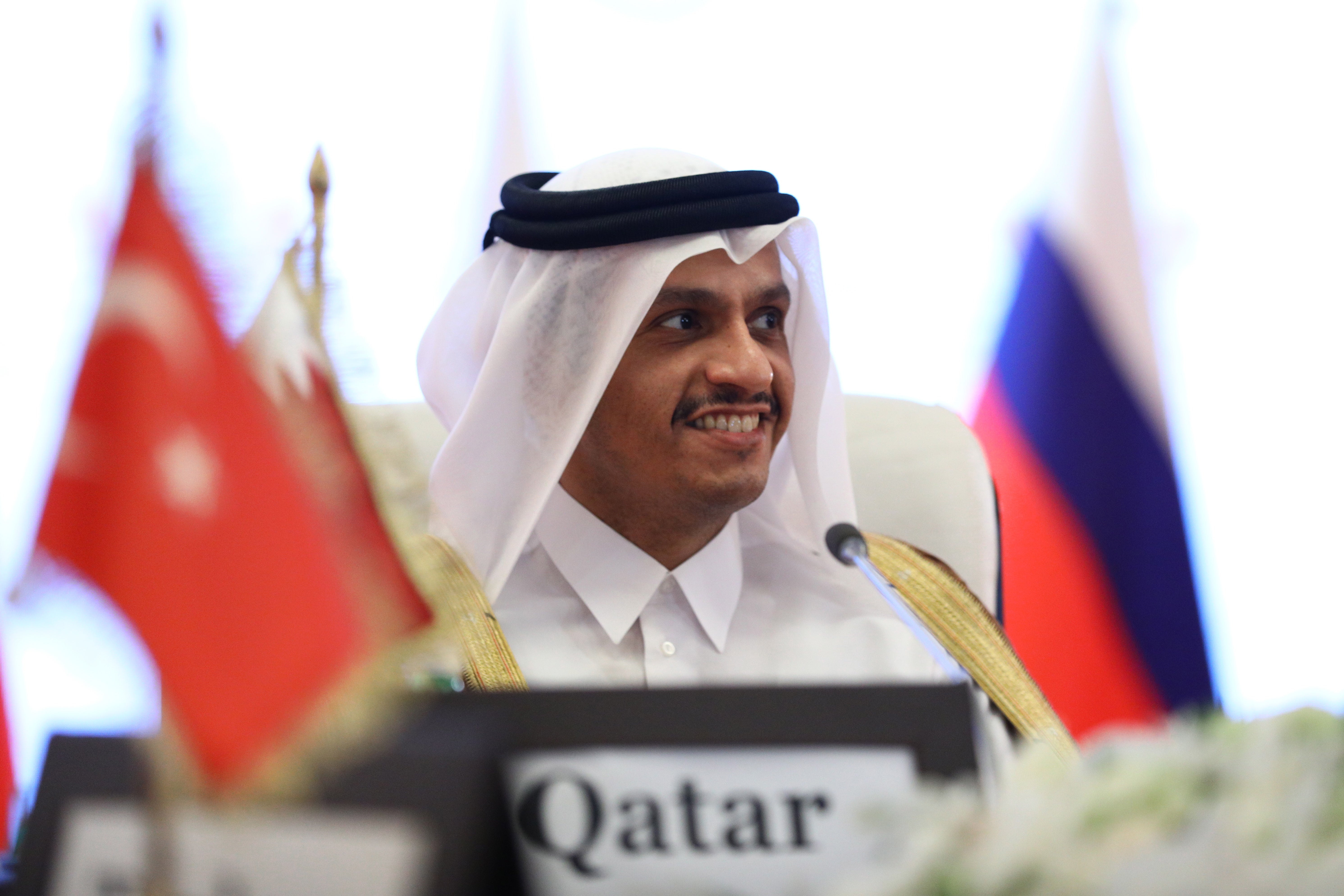What does the UAE have to gain from India-Pakistan peace?
UAE’s role in brokering peace talks between India and Pakistan reflects three major foreign policy concerns, reports Akshita Jain


When India and Pakistan announced a ceasefire along their de facto border last month – dialling down months of hostility – the name of the country which apparently helped broker this peace deal among the nuclear-armed neighbours took some by surprise.
United Arab Emirates (UAE) – the oil-rich Western Asian neighbour of arch-rivals New Delhi and Islamabad – is fast emerging as a soft power in the geopolitical region, moving from militarisation to diplomacy.
Regional experts told The Independent that the UAE primarily had three reasons to negotiate the talks – it wants to project itself as a key player in regional politics, elbow out Qatar, and to pander to the new administration in the United States.
“UAE’s greatest threat is from the Muslim Brotherhood. To meet the challenge of the Muslim Brotherhood and dilute the influence of Qatar, the UAE has been projecting an alternative persona in the region,” said Talmiz Ahmad, former Indian ambassador to the UAE.
The Muslim Brotherhood has long been a flashpoint between the UAE and Qatar. While Doha backs the international Islamist movement, Abu Dhabi has been opposed to it since 2011. It was also one of the reasons behind several Gulf countries, including the UAE, severing economic and diplomatic ties with Qatar in 2017, along with Doha’s closeness to Iran.
Read more:
Earlier this year, officials from the UAE and Qatar met in Kuwait for the first time since they agreed to end their dispute of more than three years. Trade and travel links have also opened up between the two sides following mediation by the US and Kuwait.
Qatar’s relations with both India and Pakistan is another issue that irks Abu Dhabi, which itself is looking at strengthening ties with the south Asian neighbours.
The UAE is hoping to limit the role of Qatar in South Asia, said Osamah Khalil, associate professor of history at Maxwell School of Citizenship and Public Affairs.
“Qatar’s relations with India and Pakistan are expanding. Although the Saudi-UAE blockade of Qatar recently ended, tensions remain. Qatar is currently the main provider of liquid natural gas to India and also provides large quantities of liquid natural gas to Pakistan,” Mr Khalil said.
During his visit to Qatar last December, India’s external affairs minister Subrahmanyam Jaishankar highlighted the investment opportunities in India while interacting with business leaders there. A statement from India’s ministry of external affairs also noted that Qatar hosts more than 700,000 Indians and bilateral trade was worth $10.95bn (£10.82bn) in 2019-20.
Meanwhile, Pakistan and Qatar last month signed a 10-year agreement for supply of LNG. An aide to Pakistan prime minister Imran Khan also noted that the country’s “military leadership also had dynamic relations with Qatar that had been facilitating talks between the United States and Taliban for peace in Afghanistan,” according to Dawn.

“UAE intends to keep both India and Pakistan in its economic and diplomatic orbit. While its strategic partnership with India has significantly strengthened, its ties with Pakistan were strained mainly due to its anti-India rhetoric over Kashmir,” said Nagapushpa Devendra, a research analyst at Manohar Parrikar Institute for Defence Studies and Analyses.
New Delhi and Islamabad’s relations hit a new low after India stripped away Kashmir’s special constitutional autonomy in 2019. UAE’s ambassador to India said at the time that the decision was an internal matter and “we expect that the changes would improve social justice and security and confidence of the people in local governance”.
Top diplomats from the UAE and Saudi Arabia later visited Pakistan in what was termed as a “symbolic show of unity” soon after Modi government’s Kashmir decision.
Ms Devendra pointed out that as far as the UAE is concerned, maintaining a cordial relationship with Pakistan is important to prevent it from swinging towards Iran and Turkey.

The UAE is also seeking a larger role for itself in regional affairs and brokering the India-Pakistan talks is a step towards that.
“Abu Dhabi has sought a larger political, military, and economic role in the broader Middle East and South Asia for over a decade. It wants to translate its wealth and trade ties into political and diplomatic power,” said Mr Khalil.
“Brokering negotiations with Pakistan and India and achieving a possible settlement to the long-standing Kashmir conflict would build on the UAE’s recent normalisation agreement with Israel and would be a significant accomplishment for UAE Crown Prince Mohammed bin Zayed,” he said.
Israel and the UAE reached a deal, brokered by former US president Donald Trump, last year to normalise relations. The agreement was largely looked as a diplomatic victory for Mr Trump and one of the key benefits for Abu Dhabi was strengthened relations with Washington.
UAE brokered the talks between India and Pakistan to subserve US strategic interests in South Asia, Mr Ahmad said.
The Joe Biden administration wants to ensure that India-Pakistan tensions do not become so serious that they lead to a possible war, he said. “Americans want to manage the relationship between India and Pakistan and to pull Islamabad away from the exclusive embrace of China. They also want to keep Pakistan playing a constructive role in Afghanistan, easing America’s departure from that country,” he said.
It serves the interest of both India and Pakistan to defuse tension and recommit to a ceasefire.
For India, “negotiating peace with Pakistan is important because of the China factor,” Ms Devendra said.
India and China have been involved in a standoff since last year and tensions peaked after the militaries of the two countries clashed in Ladakh. While 20 Indian soldiers died, China admitted for the first time last month that it also suffered four casualties. Despite several rounds of talks, the two countries are yet to reach a mutually acceptable solution for complete disengagement at all friction points.
“India is concerned that Beijing might use Islamabad to challenge its interest in the region. India cannot afford to focus on two-front conflict at the moment. Therefore, it is trying to ease its tensions with Islamabad, in order to focus on a bigger problem or opponent – China,” said Ms Devendra.
Meanwhile, Pakistan possibly felt the need to participate in peace talks because it is dealing with an internal economic crisis.

“De-escalation would give it some elbowing space to focus its attention on the terrible state of the economy,” said Dr Sujata Ashwarya, Associate Professor at India’s Jamia Millia Islamia University.
The other reason is that Pakistan also wants to come out of the Financial Action Task Force (FATF) – an international body designed to tackle money laundering – list, she said. “It affects the aid Pakistan gets from the US and getting out of that list is a foreign policy priority for Pakistan,” Ms Ashwarya said.
The FATF last month decided to retain Pakistan on the “greylist” till the next review of its performance. FATF president Marcus Pleyer said although Pakistan had made significant progress, it was still to fully comply with three of the 27-point list it was given in 2018.
The security situation on the Afghanistan border, FATF, and internal issues are possible reasons behind Pakistan’s decision to agree to the recently announced ceasefire, India’s army chief General MM Naravane recently said.
Join our commenting forum
Join thought-provoking conversations, follow other Independent readers and see their replies
0Comments